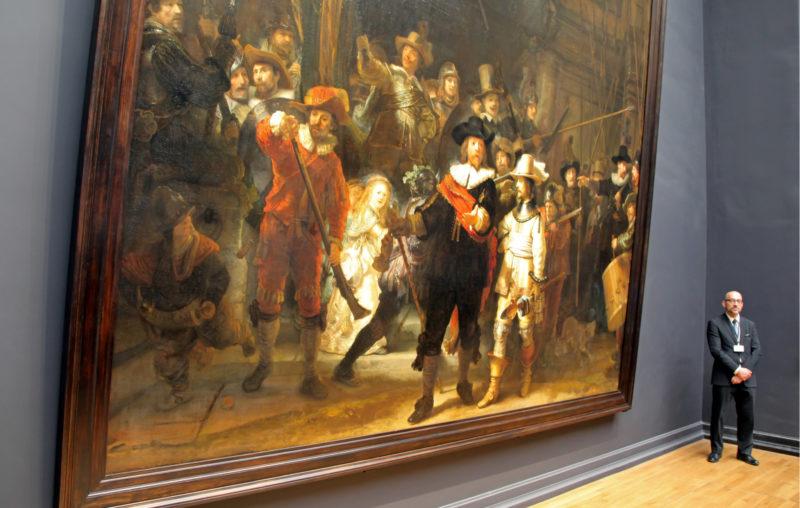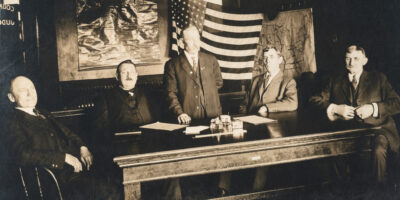Wait, So We Now Can’t Say ‘Human Capital’?

Referring to the ongoing reopening process, White House economic adviser Kevin Hassett offered an off-the-cuff observation in a television interview with CNN: “Our capital stock hasn’t been destroyed, our human capital stock is ready to get back to work, and so there are lots of reasons to believe that we can get going way faster than we have in previous crises.”
Although “human capital” is a well-established concept from economics, Hassett’s use of it triggered a flood of hectoring fury from journalists and activist academics. A columnist for Rolling Stone blasted the phrase as “next-level apathetic,” noting that it “casually lines up with the lack of empathy shown to the victims of the coronavirus.”
A Vox commentator who first called attention to the clip blasted Hassett’s remark for allegedly “dehumanizing” workers. Sen. Elizabeth Warren chimed in, saying the phrase revealed a prioritization of “corporate profits” over the health and safety of workers. Congresswoman Alexandria Ocasio-Cortez went a step further, accusing Hassett of “racialized” terminology in a series of tweets. Academic Twitter chimed in to declare the phrase a code word for chattel slavery – a claim they linked to its alleged origins in the antebellum United States.
It would have taken these feverish commentators a quick google search to discover that Hassett was, at worst, guilty of importing economics jargon into his public commentary. Although it may be less than artful as a soundbite, human capital theory is a well-established conceptual framework for understanding the effects of education, training, job-acquired knowledge, creativity, and similar human assets on labor markets (see this short synopsis by Nobel laureate Gary Becker).
The scholarly literature on this subject is vast, and even the specific phrase that Hassett used – “human capital stock” garners over 16,000 citations according to Google Scholar.
It requires an almost intentionally uncharitable reading of Hassett’s remarks on “human capital” to make the leap to his critics’ judgements, let alone slavery. This latter claim appears to derive from academic works that ascribe its genesis to an 1842 usage in reference to the African slave trade, and to the “New History of Capitalism” literature, which has sought to reframe the concept as a slavery-specific reference.
But even this origin story is wrong. The phrase “human capital” saw multiple uses in the early 19th century. Its earliest use dates to at least 1799 in an account by historian William Tooke, who observed that rampant alcoholism was responsible for the “loss sustained by the [Russian empire] in its human capital.” Its economic formulation comes not from the practices of the plantation system, but from the 20th century subfield of development economics. In addition to Becker, the foundational contributions to human capital theory are usually credited to the work of Theodore Schulz and Sir Arthur Lewis. Although the phrase had not yet been adapted to its current academic use, its underlying formalization traces to a seminal 1954 article by Lewis:
“The central problem in the theory of economic development is to understand the process by which a community which was previously saving and investing 4 or 5 percent of its national income or less, converts itself into an economy where voluntary saving is running at about 12 to 15 percent of national income or more. This is the central problem because the central fact of development is rapid capital accumulation (including knowledge and skills with capital).” (emphasis added)
Lewis would expand on the complex relationship between knowledge, physical capital, and economic growth over the course of his career. But as Lewis later explained, human capital theory had even earlier conceptual origins in an lightly-elaborated observation by Adam Smith, who in 1776 noted that the “general stock” of capital in a country consists of:
Fourthly, of the acquired and useful abilities of all the inhabitants or members of the society. The acquisition of such talents, by the maintenance of the acquirer during his education, study, or apprenticeship, always costs a real expence, which is a capital fixed and realized, as it were, in his person. Those talents, as they make a part of his fortune, so do they likewise of that of the society to which he belongs. The improved dexterity of a workman may be considered in the same light as a machine or instrument of trade which facilitates and abridges labour, and which, though it costs a certain expence, repays that expence with a profit.
Lewis, of course, was the first and to date only black economist to win the Nobel Prize. And Smith was an outspoken opponent of slavery. While the economic applications of human capital theory continue to be debated, to depict them as an act of coded pining for the plantation system borders on conspiratorial lunacy.
So what, then, explains the unhinged responses to Hassett’s use of such a common economic concept? Allow me to suggest that it reflects a barely-concealed undercurrent to the pro-lockdown enthusiasm we have witnessed from journalists and academics in the last few months.
Drawing upon their own ideological priors, many commentators in these two groups have come to view any and all pressures to reopen the economy through a paranoid lens. That lens portrays any effort to ease the lockdowns and allow people to return to their normal lines of employment as inherently “exploitative” on the grounds that doing so exposes them to potentially unsafe conditions at the penalty of losing their jobs.
Often accompanying this belief are unsubstantiated theories that (1) most businesses can afford to pay their workers to stay home through the “excess profits” that they all supposedly have, and that (2) most public manifestations of resentment against the lockdowns are being secretly orchestrated by monied interests who consider their workers “expendable.”
One does not need to look far to discover that these sentiments reflect an echo chamber among professionals who enjoy the luxury and comforts of being able to weather the pandemic while working at home. Meanwhile, an estimated 36 million Americans are currently out of work, with a disproportionate number of them coming from retail and service industries that have been forcibly closed for the last two months or longer.
It takes a bizarre ideological myopia to reach the conclusion that the lockdowns must be maintained in the interest of the very same people they have forcibly displaced from their means of income, let alone that journalists and academics know the prudence of this course better than the people most directly affected by the same decisions.
Yet that is our current political discourse. That is how even a casual reference to a common and widespread conceptual tool from economics can be contorted into a conspiratorial design for malice by persons who present themselves as intellectual elites but lack even a passing familiarity with the subjects of their frenzied imaginations.










